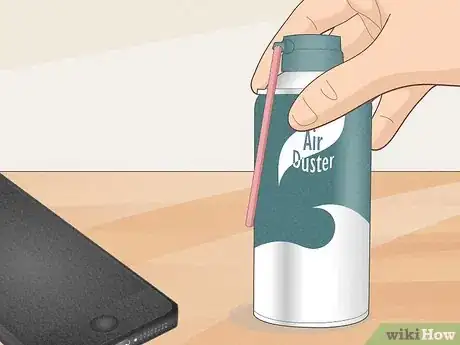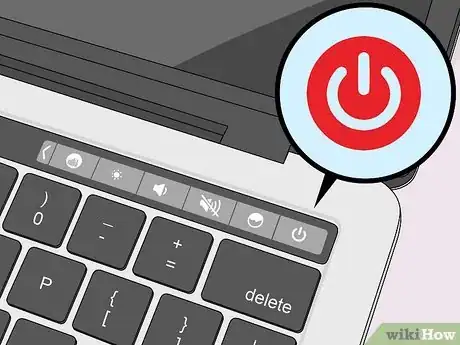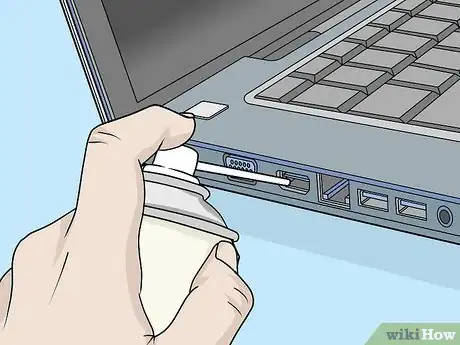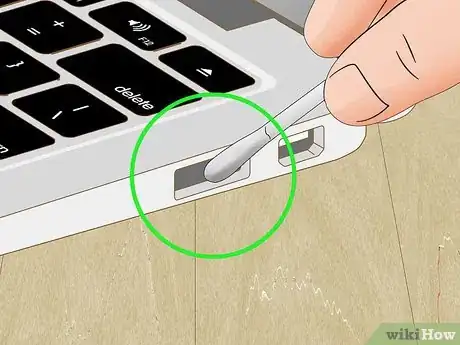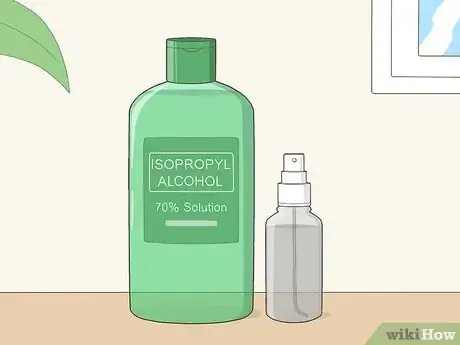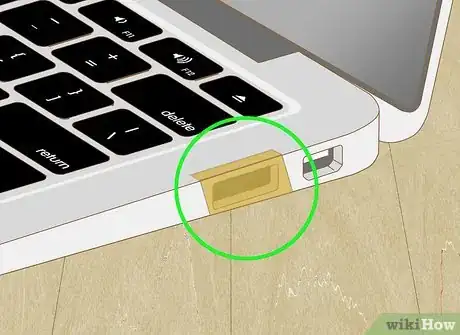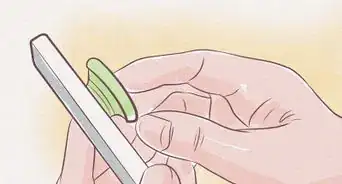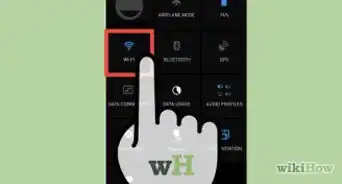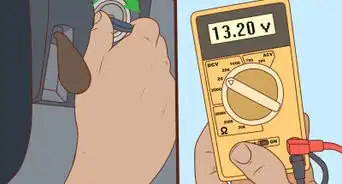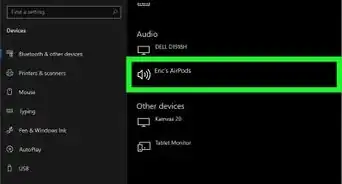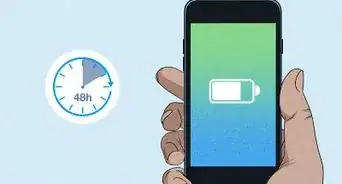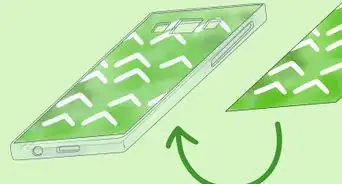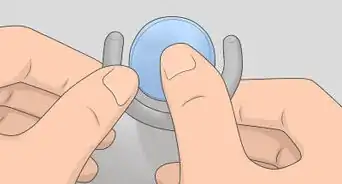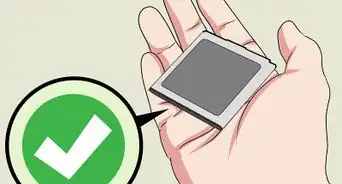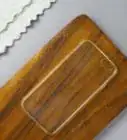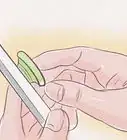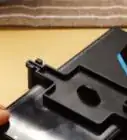This article was written by Mitch Harris and by wikiHow staff writer, Nicole Levine, MFA. Mitch Harris is a Consumer Technology Expert based in the San Francisco Bay Area. Mitch runs his own IT Consulting company called Mitch the Geek, helping individuals and businesses with home office technology, data security, remote support, and cybersecurity compliance. Mitch earned a BS in Psychology, English, and Physics and graduated Cum Laude from Northern Arizona University.
This article has been viewed 42,006 times.
Many modern laptops, gaming systems, phones, and tablets now come with USB-C charging ports, which makes it easy to charge different devices with the same style of charger. Like other exposed electronics ports, USB-C ports can collect dust, grime, and debris. If it's difficult to insert a cable into your USB-C charging port, or if your device isn't charging, the port could be dirty. This wikiHow teaches you how to safely remove dirt and other substances from USB-C charging port using compressed air and a dental pick.
Steps
-
1Gather your cleaning materials. First, make sure you're working on a clean, flat surface with sufficient lighting. Then, gather the following supplies, many of which you may already have around the house:
- A can of compressed air.
- A plastic dental pick, if there's anything sticky or too hard to remove with compressed air. A wooden toothpick is too thick unless you can shave it down to a size that will fit into the port.
- A small amount of cotton and rubbing alcohol, for tougher jobs. 70% isopropyl alcohol or more is fine.
- Instead of alcohol, you could also use a quick-drying electronics cleaner made specifically for cleaning ports, sensors, and other electronics.
-
2Turn off your device. Whether you're cleaning the USB-C charging port of a laptop, Nintendo Switch, phone, camera, or other device, you'll want to make sure it's fully powered down before you begin.Advertisement
-
3Spray quick bursts of compressed air into the port. Bursts of one-to-two seconds should be enough to loosen debris. Repeat this several times at different angles until the port is clear.
- Most cans of compressed air come with a straw-like nozzle attachment that you can affix onto the nozzle—this piece allows you to spray concentrated bursts right into the port.
- If possible, hold the device upright so that the charging port faces downward, and then spray upward into the port. This allows excess debris to fall from the port to your working surface.
-
4Drag a dental pick around the edges of the port. If there's a substance inside of the port that can't be removed with air, you can use the sharp end of a plastic dental pick or a narrow toothpick. Avoid using anything too sharp, like a needle.
- Be firm, but not rough—you don't want to loosen the port.
- Don't blow into the port with your mouth to loosen the gunk you remove with the dental pick—this could introduce excess moisture into the port and damage the internal components. Instead, hold the device with the port facing down and blow it free with compressed air.
-
5Use isopropyl alcohol or electronics cleaner to work on sticky substances. If the port has some sort of gunk or goo inside, wrap a small amount of the cotton around the end of the dental pick, and dampen the cotton with a small amount of isopropyl alcohol. Circle the inside of the port with the cotton end until you've removed the substance.
- Don't get the cotton too wet with alcohol—just enough to dampen it.
- Be careful not to get rubbing alcohol anywhere else on your device, as it can ruin certain oleophobic screen coatings, as well as the rubber seals inside of waterproof phones and tablets.[1]
- You can put low-intensity rubbing alcohol on a q-tip.
- Then gently wipe the area with it.
-
6Keep your port covered in the future. Since USB-C charging ports are commonly available for devices made to be taken out of the home or office, these ports are often exposed to a fair amount of dust and debris. Take smartphones, for example, which you may stick into your coat pocket, leave on a dirty table, or throw into a dusty purse. Some ideas for keeping your port clean:
- Cover the port with a small strip of adhesive tape when you're not using it. This may leave a little residue on the port over time, but you can easily clean it off with isopropyl alcohol and cotton.
- Use a case that covers the port when you're not using the device. Most phone and tablet cases leave USB-C charging ports exposed for ease of use, but you can opt for one that doesn't.
- Purchase a USB-C dust plug—a small plastic or silicone plug that fits inside of your port when you're not using it. These small pieces are easy to find at electronics stores and other retailers.
References
About This Article
1. Turn off the device.
2. Spray quick bursts of compressed air into the port.
3. Drag a dental pick around the inner edges.
4. If there is goo or gunk, wrap a small amount of cotton around the end of the dental pick.
5. Dampen the cotton end with isopropyl alcohol and circle the inside of the port until it's clean.
